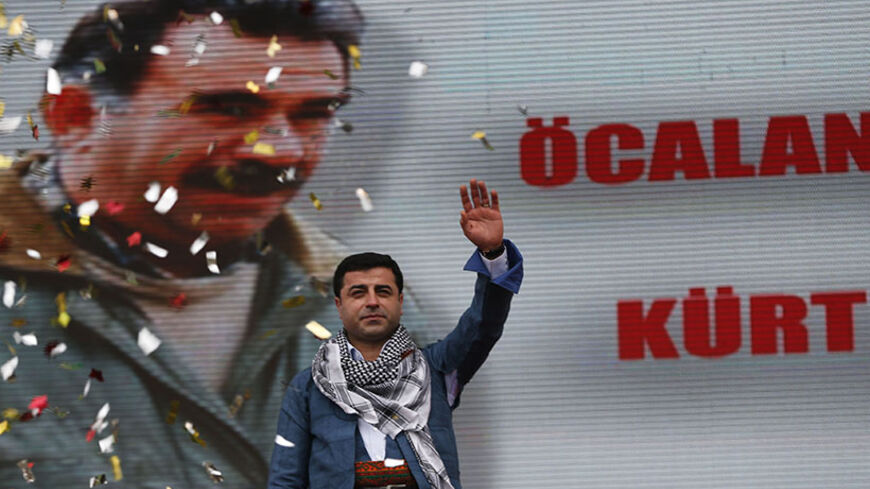A day before the Justice and Development Party (AKP) revealed its presidential candidate, the People's Democracy Party (HDP) announced as its presidential candidate, Selahattin Demirtas. Demirtas could well be a more formidable challenge to Prime Minister Recep Tayyip Erdogan than the joint candidate named by the two main opposition parties — the Republican People's Party (CHP) and Nationalist Action Party (MHP) — Ekmeleddin Ihsanoglu, who until recently had occupied the highest post of the Islamic Cooperation Organization (the former Islamic Conference Organization). Ihsanoglu, a professor, was nominated to attract votes from Erdogan’s ostensibly invincible constituency. Yet, Kurdish contender Demirtas may rise as the real challenge.
For the second time in a decade, a Kurdish presidential candidate has emerged in a country where the majority of the population is not Kurdish. Jalal Talabani, one of the most prominent figures in Kurdish political history, was elected as president of Iraq in 2006 and 2010. This cemented Iraq's territorial integrity and kept the Kurds within the state of Iraq, although Iraq constitutionally changed to a federal country with the Kurds enjoying self-rule through the Kurdistan Regional Government.


